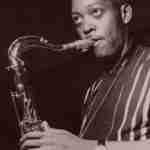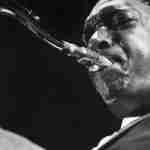There are certain components to playing jazz that must be happening for any line to sound good. These overlooked skills are what make a line shine.
If you get these things together, suddenly you’ll realize that everything you play sounds a whole lot better.
Achieving solid intonation
For some reason, jazzers feel that intonation is of secondary importance. This is a huge mistake. I’m not quite sure how they came to this conclusion, but I do understand it because when I was a freshman in college I remember having a similar attitude.
“Intonation???!!!! Why the hell do I need to worry about that?!!! I want to know what Kenny Garret’s playing, not how to keep an “A” in tune.” I remember arguing with my awesome teacher Art Bouton over these issues, claiming that things like intonation didn’t matter that much, and that a saxophone should never be used to play classical music.
Art was 100% correct and I was an ignorant 18 year old. Intonation matters more than any cool idea you could ever play and a great way to work on things like intonation is by practicing classical etudes with a tuner.
So why does intonation matter so much? If you’re not in tune, major thirds are not major thirds and perfect fourths end up being not-so-perfect. For any line to lay correctly against the harmony, these intervals must be accurate.
Use your tuner for more than just tuning-up at the beginning of your practice session. Put it on the stand and play through a classical etude as suggested earlier. Or, play through a simple melody that contains many leaps like All the Things You Are and dial in every note.
It doesn’t take much to become more aware of being in tune. Just keep practicing as usual, but get that tuner out and more importantly, actually use it.
Playing with a consistent voice
Have you ever heard a player that sounds like Coltrane one minute, Dexter the next, and then shortly thereafter they sound like a bluesy-studio-tenor-player?
Playing with multiple voices during a solo confuses the listener. It’s as if mid-conversion I started to speak in an English accent. It might get a few laughs, but it definitely would confuse whom ever I’m conversing with.
Aim to play with a consistant voice through all the ranges of your instrument, throughout a solo, and ideally…throughout the many solos you take. When I think about playing with a consistent voice, tenor great Mark Turner comes to mind. It doesn’t matter what style he’s playing, whether it be a standard or a funk tune, he plays with his voice. Check out this video of him laying it down in a big band setting.
Using constant airflow
If you’re a horn player, your airflow is like a power supply: it should be on all the time, emitting power to run your instrument, not wavering in the least. A steady stream of focused air is what makes your lines, sound, and articulation all unite to create flowing melodic lines.
Without a solid stream of constant airflow, lines sound choppy and disjunct.
If you are not a horn player, this concept still applies, but in a more abstract sense. For instance, if you’re a pianist, imagine that you are a horn player and that you have to push a continuous column of air through your line. Thinking in this manner will change the way you play the line, giving it more direction and impact.
Being comfortable not playing
I remember when I was younger having to play on every chord change. If I didn’t play on every chord change, I’d get lost or at least think that I’d get lost.
Learning to be comfortable with time passing as you do not play, frees you up. Your relationship to time and phrasing completely changes. You learn how to interact with the time instead of being a slave to it.
For more about this skill, read about exploring space.
Learning the true concept of swing
Paul Desmond swings and so does John Coltrane, but they sound completely different. The concept of swing has to do with articulation, accent, airflow, how you move your fingers, and other subtle factors that cannot be accurately written down.
The only reliable way to learn the true concept of swing is to imitate it and assimilate it from the masters. I used to work on all sorts of articulation exercises, tonguing the up-beats, accenting them, trying all kinds of exercises…nothing worked. Stop wasting your time. Go transcribe a solo and you’ll naturally learn to swing.
Necessary skills to make your lines come to life
- Solid intonation
- Playing with a consistent voice
- Using constant airflow
- Being comfortable not playing
- Learning the true concept of swing
Practicing these 5 skills will yield surprising results. You’ll understand how Stan Getz can play two notes and sound incredible. Lines you’ve been playing for years will sound new and fresh. And you’ll know from personal experience that it’s less about what you play than how you play it.










